Compass Technology Group has a unique line of specialized devices that use CEM inversion instead of physics approximations to enable measurements that were not previously possible. The CEM inversion method enables the design of compact fixtures that cannot be described by simplified equations. The power of this new development has enabled a variety of new sensors and devices that are electrically small but still provide lab-quality accuracy, even when used in an industrial or manufacturing environment.
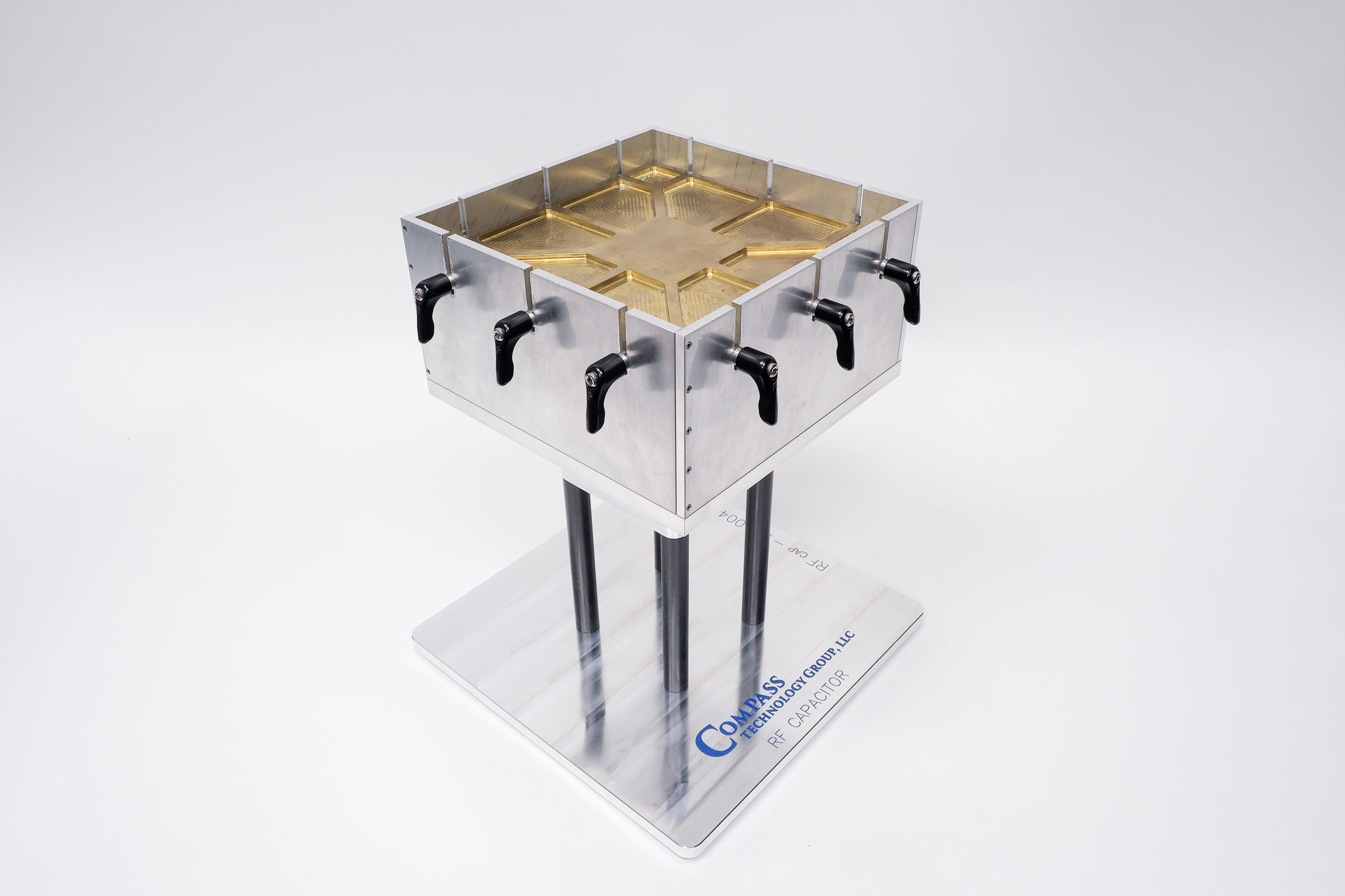
RF Capacitor to Convert Measured S-Parameters into Complex Permittivity
The RF Capacitor is a device for determining the complex dielectric permittivity of bulk materials at very-high (VHF) and ultra-high (UHF) frequencies. It combines the concept of a low frequency capacitance method with radio frequency (RF) principles to enable accurate characterization of isotropic or anisotropic materials.
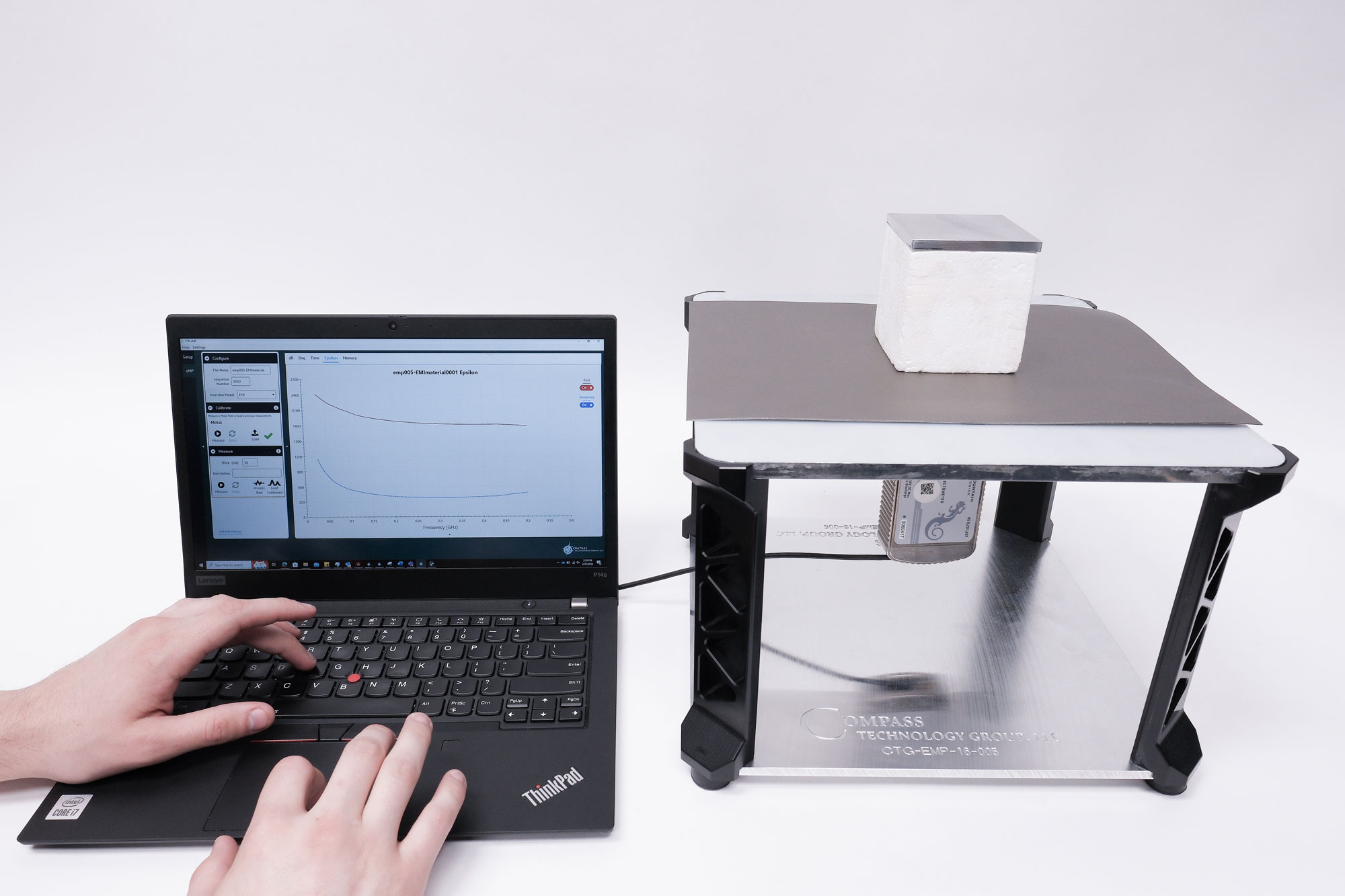
Epsilon Measurement Probe (eMP)
The epsilon measurement probe (eMP) is a small, tabletop fixture that measures complex dielectric permittivity of bulk or sheet specimens from 30 MHz to 500 MHz. It consists of a short transmission line terminated in an open circuit. Material specimens are placed onto the small sensor embedded within a larger metal ground plane. CEM inversion then rapidly converts the measured S-parameter data into real and imaginary permittivity.
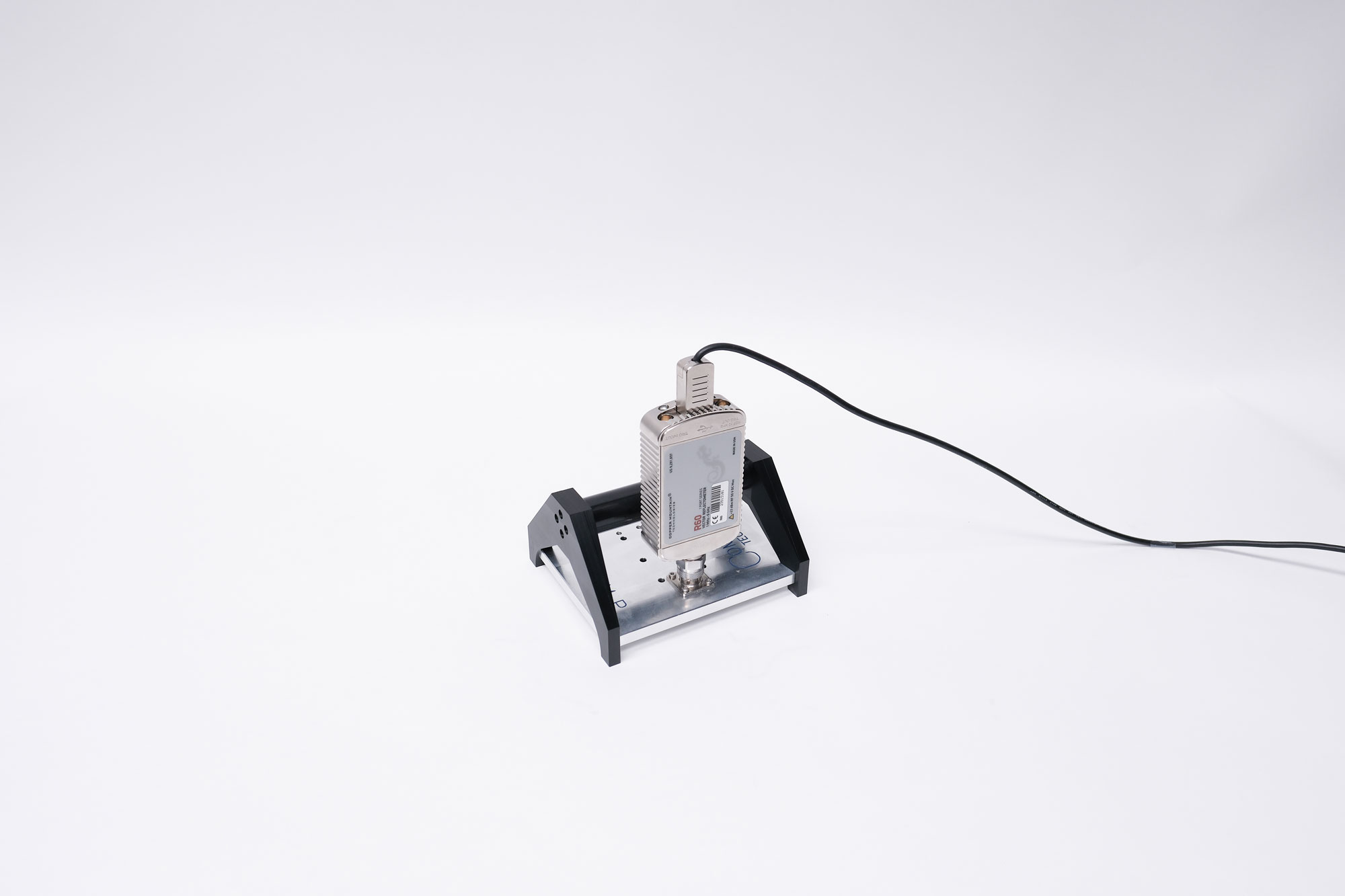
Mu Measurement Probe (muMP)
The mu measurement probe (muMP) measures complex permeability of specimens from 60 MHz to 500 MHz. It consists of a short transmission line terminated in an electrical short. Material specimens are placed or built onto a conductive back plane and the sensor is placed on top to characterize real and imaginary magnetic permeability. CEM inversion rapidly converts the measured S-parameter data into magnetic properties.
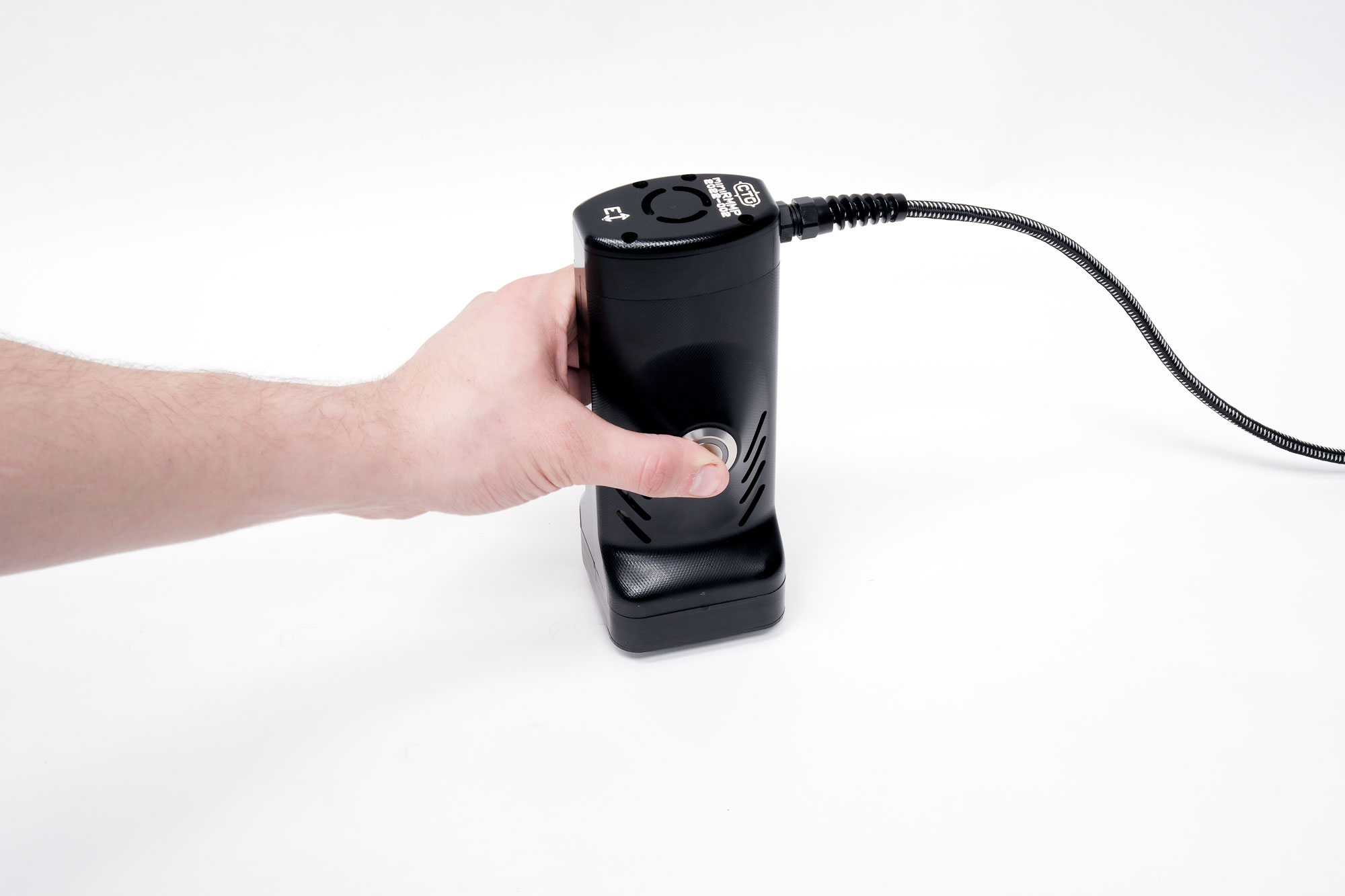
Resistive Material Measurement Probe (RMMP)
The resistive material measurement probe (RMMP) is an open-ended stripline transmission line that can be placed on a material specimen or component to determine its intrinsic properties. This handheld device integrates a miniaturized VNA so that it is compact and rugged. It also uses CEM inversion to extract of complex dielectric permittivity or complex sheet impedance, depending on the user’s need.
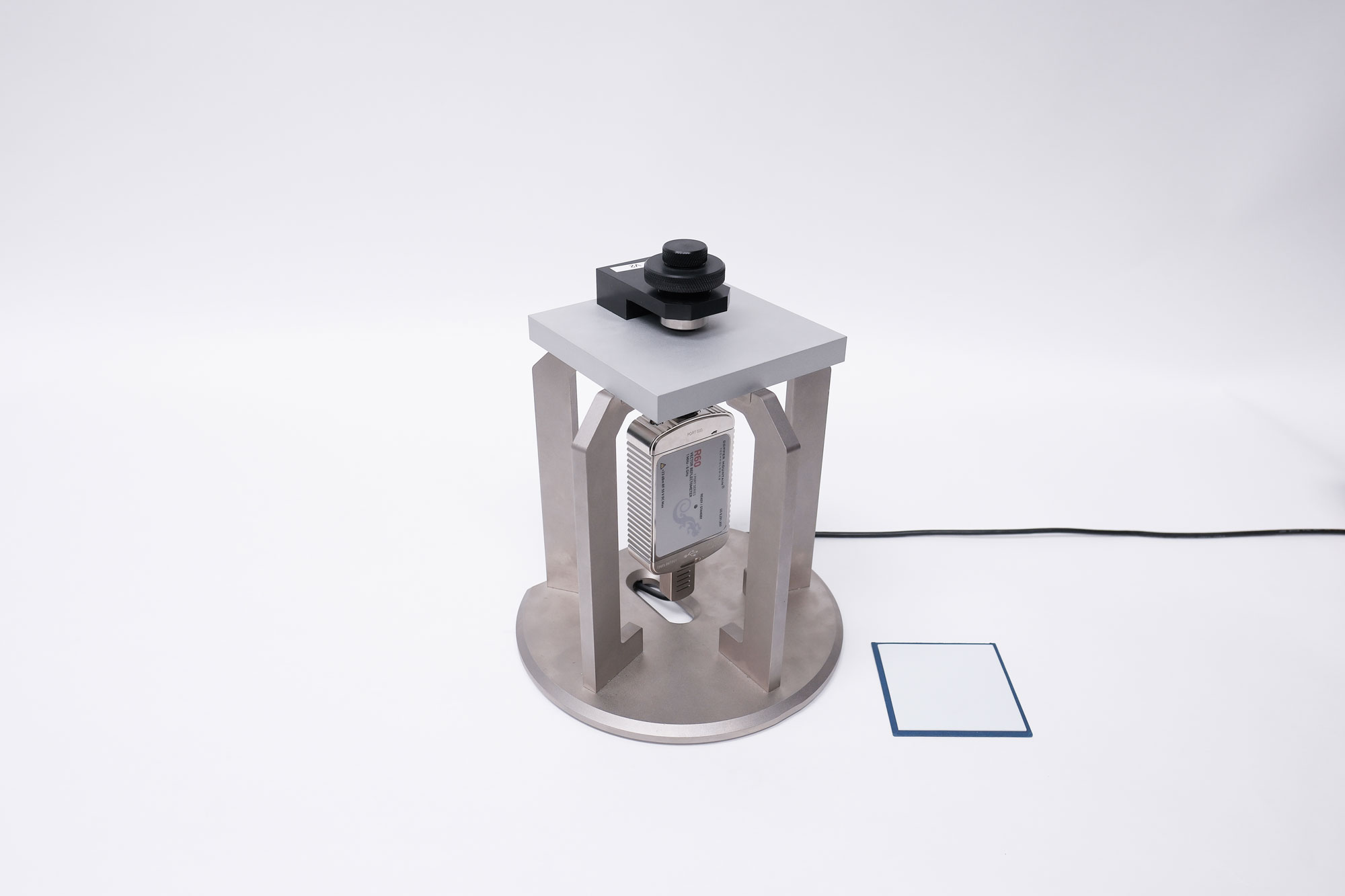
Epsilometer
The epsilometer is a low-cost fixture for characterizing complex permittivity of microwave substrates and PCBs over a very broad frequency range. It is based on the traditional capacitive measurement method in which a test specimen is surrounded by parallel plate electrodes. However instead of an approximate capacitance model, the epsilometer uses CEM inversion to extract complex dielectric permittivity.

